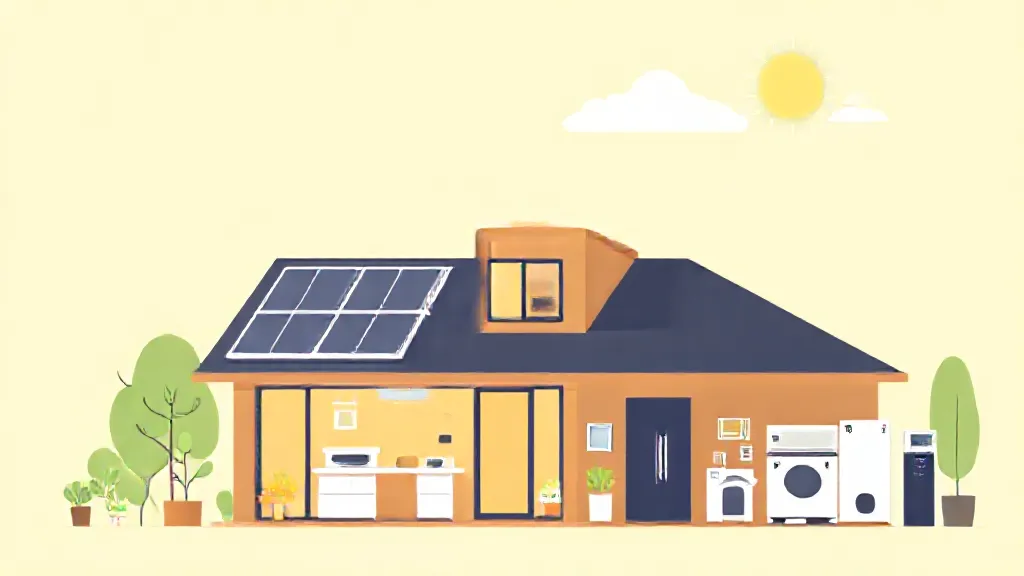In recent years, the importance of energy efficiency in homes has surged, driven by rising energy costs, environmental concerns, and the quest for sustainable living. Technology plays a pivotal role in enhancing home energy efficiency, offering innovative solutions that not only reduce energy consumption but also lower utility bills and minimize carbon footprints. This article delves into various technological advancements that can significantly improve energy efficiency in residential settings.
Smart Home Devices Revolutionizing Energy Management
Smart home technology has transformed how homeowners manage energy consumption. Devices such as smart thermostats, lighting systems, and energy monitors enable users to control their home environment remotely through mobile applications. For instance, smart thermostats like the Nest Learning Thermostat learn user habits and adjust heating and cooling systems accordingly, optimizing energy use.
According to a study by the Energy Saving Trust, households using smart thermostats can save up to 10-12% on heating bills annually.
Energy-Efficient Appliances Leading the Charge
The advent of energy-efficient appliances has been a game-changer in reducing household energy consumption. Appliances that meet ENERGY STAR standards consume less energy than their conventional counterparts, leading to significant savings over time.
For example, modern refrigerators, dishwashers, and washing machines are designed to use less electricity and water without compromising performance. The U.S.
Department of Energy reports that replacing an old refrigerator with an ENERGY STAR model can save about $200 over its lifetime.
Solar Energy Systems: Harnessing the Power of the Sun
Solar energy systems have become increasingly popular as a means to improve home energy efficiency. By installing solar panels, homeowners can generate their own electricity, reducing reliance on the grid and lowering energy costs.
Advances in solar technology, such as photovoltaic cells and solar inverters, have made these systems more efficient and affordable. According to the Solar Energy Industries Association, the average cost of solar panels has dropped by over 70% since 2010, making solar energy accessible to a broader audience.
Home Insulation Technologies Enhancing Energy Conservation
Proper insulation is crucial for maintaining a comfortable indoor environment while minimizing energy use.
Advanced insulation materials, such as spray foam and insulated concrete forms, provide superior thermal resistance compared to traditional materials. These technologies help to keep homes warm in winter and cool in summer, reducing the need for heating and cooling systems to work overtime. The U.
S. Department of Energy estimates that proper insulation can save homeowners up to 20% on heating and cooling costs.
Energy Management Systems for Optimized Usage
Energy management systems (EMS) are another technological innovation that helps homeowners monitor and control their energy consumption.
These systems provide real-time data on energy use, allowing users to identify patterns and make informed decisions to reduce waste. By integrating with smart home devices, EMS can automate energy-saving actions, such as dimming lights during peak hours or adjusting thermostat settings based on occupancy. Studies show that homes equipped with EMS can reduce energy consumption by up to 30%.
The Role of Smart Grids in Energy Efficiency
Smart grid technology plays a significant role in enhancing energy efficiency at the community level. By utilizing advanced communication and control technologies, smart grids enable better management of electricity demand and supply. They facilitate the integration of renewable energy sources and allow homeowners to participate in demand response programs, where they can earn incentives for reducing energy use during peak periods.
The U.S. Department of Energy highlights that smart grids can improve energy efficiency by up to 15% across the grid.
Electric Vehicles and Home Energy Synergy
Electric vehicles (EVs) are not only a sustainable transportation option but also contribute to home energy efficiency. Many EVs can be charged at home, and when paired with solar energy systems, they can significantly reduce overall energy costs. Additionally, vehicle-to-grid (V2G) technology allows EVs to return energy to the grid during peak demand times, providing a valuable service while offsetting charging costs.
Research indicates that integrating EVs with home energy systems can lead to a 30% reduction in household energy expenses.
Conclusion: Embracing Technology for a Sustainable Future
The convergence of technology and energy efficiency presents a unique opportunity for homeowners to embrace sustainable living practices. By leveraging smart devices, energy-efficient appliances, solar energy, advanced insulation, and energy management systems, individuals can significantly reduce their energy consumption and environmental impact.
As technology continues to evolve, the potential for enhancing home energy efficiency will only expand, paving the way for a greener and more sustainable future.
